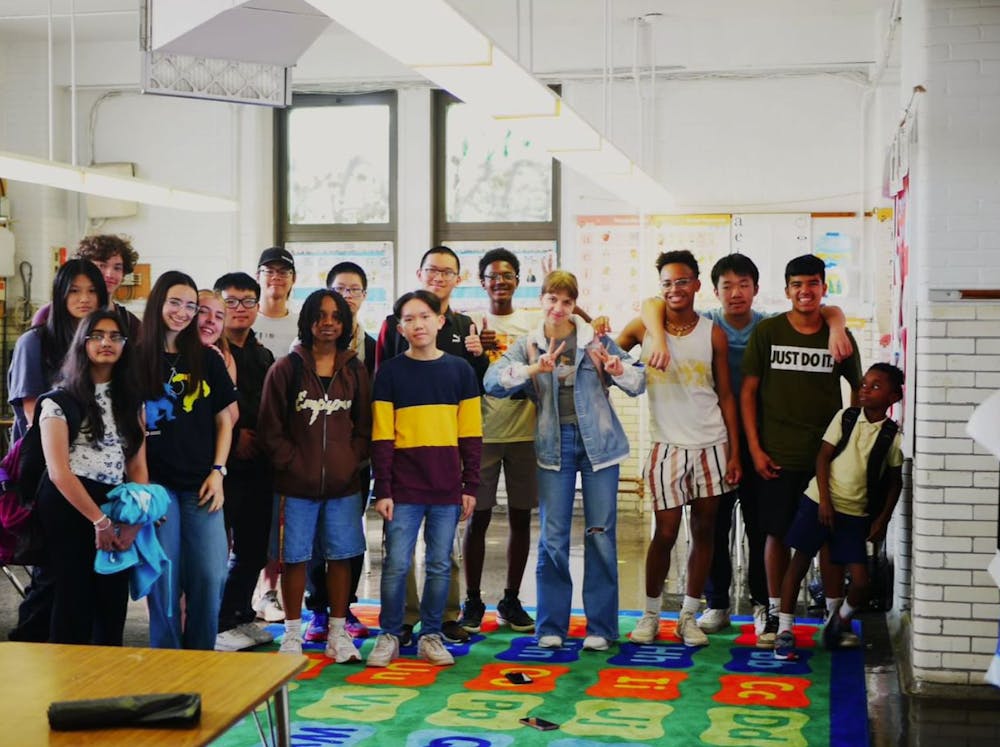During the 2022-2023 academic year, in the entire state of Pennsylvania, approximately 50% of students scored above proficient on the math PSSA´s. However, within the School District of Philadelphia (SDP), only 20% of students scored the same—a stark decrease from the state’s average.
The district’s lower scoring is not the fault of Philadephian teachers, nor does it mean public school students are not as smart. Rather, it is an issue of segregation, funding, and resources. Issues that have plagued Philadelphia and its students for decades.
Schools are often a reflection of their neighborhood's wealth. Thus, due these different societal structures, Philadelphia’s abundance of poor, predominantly Black, neighborhoods have led to underfunding within the Philadelphia District. Such a lack of resources leaves students deprived of the tools necessary to succeed.
Neighborhoods’ wealth have preconceived outlines of what is considered a “good” or “bad” school within the district. For instance, Greenfield located in Center City, a predominantly White wealthy neighborhood, regularly scores high on the math PSSA: 77% score proficient or advanced, far above the average 20% in the district. This reveals that high scores in the Philly School District are obtainable: the district’s problem is rooted in funding and resources. Moreover, the data shows that the SDP faces high inequalities. Many elementary and middle school students are deprived of the same educational opportunities as their peers in other schools, creating long term inequities.
This issue is particularly concerning for math, a subject where material builds upon grade after grade. For instance, 4th graders need the basic understanding of multiplication tables to understand division, operations with fractions, and percents. Misunderstanding one aspect of math can lead to multiple issues with learning math in the future.
Two years ago, we (Amelia Hanes and Jaden Gillion, two Central High School Seniors) noticed this problem within our community, and wanted to combat it. Therefore, last fall, we created our program, Mathematicians in the Making (M&M), to provide free math tutoring service to nearby elementary schoolers. We realized that our high school had the ability to make a difference in the lives of fellow public school students and combat education inequalities especially among elementary grades. Now, with other students from Central High School, we show up to Logan Elementary twice a week and hold math tutoring.
We tutor for two seasons: one in the Spring, and another in the Fall. By doing one-on-one tutoring, the program adapts specifically to an individual students’ needs. Mathematicians in the Making has nearly 60 tutors, who come on various days. On the day of our sessions, when the bell dismisses Central students, our tutors gather in front of the school and begin their walk to Logan Elementary. Upon arrival each tutor is given their usual tutee. They then work together through problems and fun math challenges for 60 minutes provided by our program.
Mathematicians in the Making has a robust curriculum, consisting of visual mathematics models, group activities, in-person and online games, and worksheets across many different platforms. We work closely with PSSA guidelines, and with Logan Elementary to coordinate our lesson plans with what the students are being taught in class. Our program is also meant to nourish an enjoyment for mathematics. Whether students are “racing” with math problems or calculating purchases for their snacks, we ensure that students develop a strong love for STEM, as passions are long lasting.
Finally, our program is meant to tackle issues in confidence. Mathematicians in the Making focuses on empowering students. For so long children have been told that they are “bad” at math, and thus feel less confident in their ability to multiply, divide and conquer. Mathematicians in the Making makes it a priority to support our kids emotionally, encouraging them through each problem or celebrating the completion of a difficult task. Over the past year, we’ve seen students become more confident in their abilities as they've received support. Ultimately, through each equation solved, our students show us that they’re truly mathematicians in the making.
Here are ways YOU can help:
Enjoy what you're reading?
Signup for our newsletter
Learn more about our program through our website MathematiciansInTheMaking.net
Donate to us! Donations help us host events at Logan High School. It gives us the funds to buy resources such as more whiteboards, markers, and games for students to use. Donating also can help us to expand our program to others schools across the district: https://gofund.me/70e2ced3




